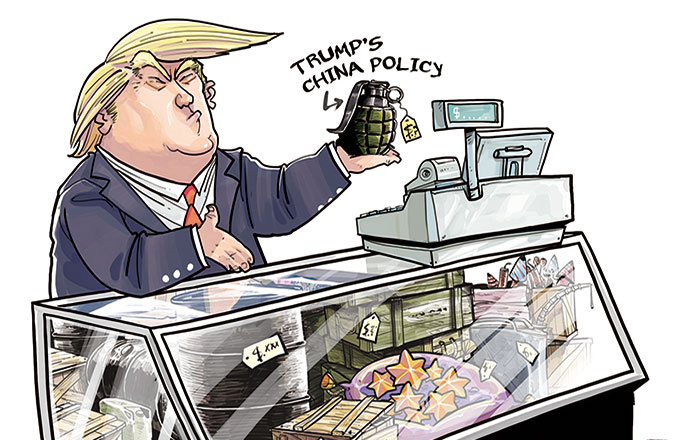Migration part of global development
Beyond the data, there is no greater symbol of the world's growing interdependence than the movement of people. If we can make meaningful economic progress in the coming generations, one of the pivotal reasons will be that people are allowed to move more freely. Advanced countries, with their adverse demographic trends, need migrants, as do developing countries - not only for migrants' economic contributions, but also for the social and cultural diversity that they bring.
This is not to deny that migration has its downsides. But migration is here to stay, and it is growing. There can be no return to a mono-ethnic past, so successful societies will need to adapt to diversity.
Typically, development experts regard migration as a sign of failure: If development policies work, people should not want to move. Accordingly, migration has been viewed as a problem to be solved - not as a solution to a problem.
But migration should not be considered good or bad; it is simply natural to the human condition. People migrate from poor countries, from middle-income countries and from rich countries. They go from north to south, south to north, south to south and north to north.
The likeliest outcome of the debate on the post-2015 global development agenda will be something between the MDG-style approach - concrete, measurable targets for reducing extreme poverty - and the emerging sustainable development narrative, which emphasizes the complex forces of interdependence, such as migration and climate change. In the imperfect world of politics, this middle ground would be a positive outcome.
Fortunately, the type of measurable outcomes that the MDGs have thus far demanded are being developed for migration. The overarching goal is to design a roadmap that can take us from today's poorly managed, exploitative system of human mobility to one that is well managed, protects migrant rights and plans for the consequences and opportunities of migration.
An ideal result would focus attention on the need to reduce the barriers to all kinds of human mobility - both internal and across national borders - by lowering its economic and social costs. Such an agenda includes simple measures, such as reducing fees for visas, and more complex reforms, such as allowing migrants to switch employers without penalty and increasing the proportion of migrants who enjoy legal protections and labor rights.
The bottom line is that making migration part of the world's development strategy will have a meaningful impact on the lives of migrants, affording them greater access to rights and to the fruits of their labor. Perhaps even more important, it could change public perceptions of migrants so that they are viewed as a blessing rather than a scourge.
The author is the UN secretary general's special representative for migration. Project Syndicate
(China Daily 03/19/2013 page9)
- China to take new measures to fight poverty for MDGs: Wen
- MDGs summit axis for reaching goals at target date
- UN chief sees MDGs achievable, calls for efforts
- China submits proposals to achieve MDGs target
- More Chinese to migrate, invest overseas: report
- Migration pull and push factors
- Migration devastation

























